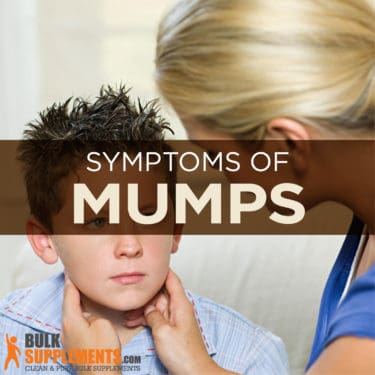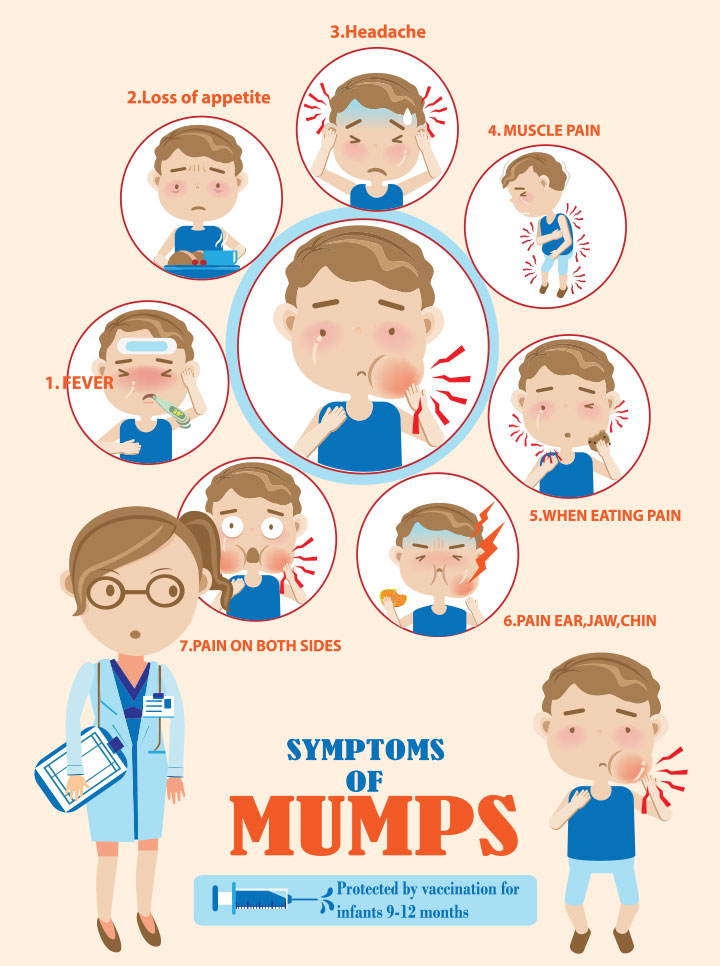
The most common treatment for mumps symptoms is bed rest and pain medication. Adults who develop this illness should stay home for the first five days until their glands start swelling. Children with mumps should stay home until their symptoms disappear. They should also cover their mouths when sneezing or coughing, to avoid infecting others. Vaccination against mumps is recommended for everyone, but not everyone will develop immunity to the disease.
A healthcare provider will examine a child’s symptoms and recommend a course of treatment if necessary. The duration of mumps symptoms varies, but they can be as long as two weeks. The best treatment for mumps is to avoid contact with other people while the symptoms last. However, if you notice the symptoms of mumps during this time, call a doctor right away. While mumps is typically diagnosed based on the patient’s symptoms and previous exposure to the virus, a blood test can confirm the diagnosis and rule out other conditions.
Some serious complications of mumps include meningitis and encephalitis, which cause inflammation of the brain. The infection can also affect the testicles, making pregnancy difficult. The most common treatment for mumps is bed rest and plenty of fluids. In severe cases, a medical specialist may take a sample of your blood, urine, or saliva to confirm the diagnosis. Occasionally, a patient will develop deafness, inflammation of the breast tissues, or even pancreatitis.
If you suspect you may have mumps, make an appointment with a healthcare provider as soon as possible. While mild symptoms usually go away in a couple of weeks, you should still see a doctor if you are pregnant or have been exposed to mumps before. If you have been exposed to a mumps virus, it is important to get the appropriate vaccination. If you have had mumps in the past, you should avoid contact with pregnant women or people who have a family history of the virus.
Symptoms of mumps usually last about two weeks. The most common symptom is pain in the neck and limbs, and it is common for people to cough and sneeze. Fortunately, the condition is treatable and one out of five people will never have any serious complications. Most people will recover completely within a few days. The only way to prevent complications from mumps is to have a vaccine against mumps, which is given in combination with other vaccines.

Mild mumps symptoms usually disappear after a couple of days, but if you have a medical history, you should see your doctor as soon as possible. You should also make sure you drink plenty of water and avoid contact with people who have the virus. You may need to be hospitalized for several days to receive proper treatment. It is best to consult the site https://hopitalcentral.org/
if you have mumps while pregnant.
There is no specific treatment for mumps, although over-the-counter pain relievers such as ibuprofen or paracetamol are effective. During this time, acidic drinks and acidic foods should be avoided as they can irritate the parotid glands. It is recommended that you visit your doctor if you think you may be suffering from mumps. The virus can cause severe damage to the brain and cochlea.
Symptoms of mumps can vary in severity. It may take up to two weeks for symptoms to appear. The infection is usually mild and does not require treatment. Most patients feel well during the first few days, but they are advised to seek medical attention if they experience any pain or fever. It is also recommended to avoid acidic drinks as they can irritate the parotid glands.
The symptoms of mumps are most commonly present 12 to 25 days after the virus has been transmitted. During this time, the body is still undergoing the incubation period, and it will take up to four weeks to fully develop the symptoms of mumps. There are no specific medications that can cure mumps. But you should visit your healthcare provider if you are pregnant and are experiencing any of these mumps symptoms.